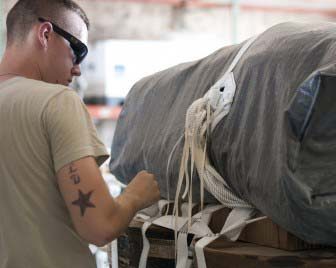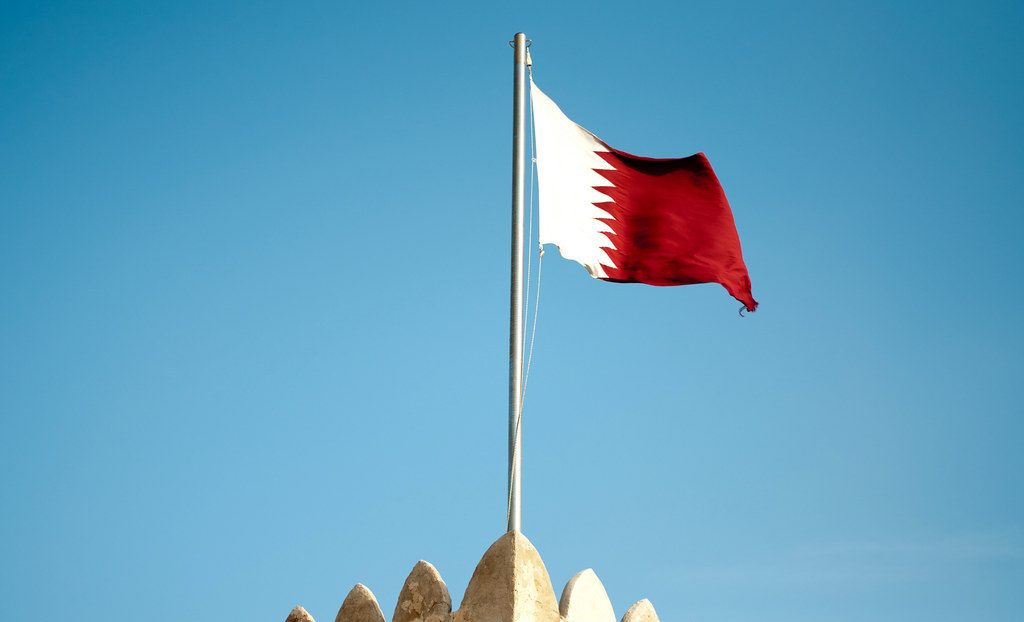
Qatari officials increased their spending on gifts to American officials last year to nearly $170,000, a quarter of which went toward presents for the US Secretary of Homeland Security and his family, recently released records show.
That’s up from $99,664 in 2013, according to an annual disclosure of gifts given to US federal employees from foreign governments around the world, which was released last week.
The official who received the most expensive items was Homeland Security Secretary Jeh Charles Johnson, whose family was given some $44,000 in gifts, including a $15,700 Cartier platinum bracelet and a $6,600 Rolex watch.

Qatar Attorney General Ali Bin Fetais al-Marri also gave both Johnson’s daughter and wife $3,200 gold Cartier necklace pendants engraved with their initials and the word “love.”
The gifts were received around the time that al-Marri met with Johnson in the US.
Several weeks later, Johnson traveled to Qatar and participated in a panel discussion on government treatment of the commercial aviation industry during the International Air Transport Association’s annual general meeting, according to a press release published at the time.
Lavish spending
US government officials are not allowed to keep most valuable gifts given to them on the job. But according to the disclosure, they accept some offerings, to “avoid embarrassment to the donor and the US government.”

Most items given to US government employees are then either transferred to the General Services Administration, a government agency that handles federal property, or put to “official” use.
It’s not clear where Johnson’s gifts ended up. The registry lists the items as being stored in what appears to be a Homeland Security building.
Qatar is far from alone in gifting expensive items to US officials. Saudi Arabia, for example, gave Michelle Obama, the First Lady of the United States, a diamond and pearl jewelry set worth $570,000.
Some of the most notable items given by Qatari officials this year include:
- Two boxes of Habanos and Cohiba cigars, as well as a 4′ x 6′ Persian rug. The gift has a total value of $7,360 and was given by al-Marri to Stephen Preston, general counsel of the Department of Defense;
- A white leather Gentili humidor worth $1,500, also to Preston from al-Marri, which will be “retained for official use in the general counsel’s office.”
- A gold scallop shell with a Qatari pearl inside a red leather presentation case worth $445 given to US Secretary of State John Kerry by his counterpart, Qatar Minister of Foreign Affairs Khalid Bin Mohammed Al-Attiyah;
- A 32GB iPhone 5, as well as a Dior men’s and ladies’ watch set with a Dior pen in a wooden box. The gift has a total value of $8,025 and was given by Gen. Ghanim Bin Shaheen Al Ghanim, Qatar’s Armed Forces chief of staff, to Heidi Grant, the deputy under secretary of the Air Force for International Affairs.
As in past years, senior members of the US Armed Forces and Department of Defense received the largest number of gifts, likely reflecting the deep security relationship between the two countries.
Security relationship
Qatar is home to Al Udeid Air Base, one of the largest American military outposts in the Middle East that’s been described as the “regional nerve center” for US-led strikes on ISIL.

General Dennis L. Via, the commanding general of the U.S. Army Materiel Command, received gifts worth more than $12,000 that included five watches, two wallets, cufflinks, a suitcase and a gold State of Qatar statue.
Gen. Via’s department oversees the research, development, maintenance and parts distribution of weapons systems. The gifts were officially received a week before Qatar announced plans to purchase billions of dollars worth of US-made military helicopters and missile defence systems.
In addition to providing glimpses into the world of diplomatic protocol and hospitality, the gift registry also provides occasional insights into joint programs.
In 2013, for example, Qatar’s Ministry of Interior spent more than $15,000 on the travel and lodging costs for senior Homeland Security officials to discuss the establishment of a joint US- Qatar law enforcement training academy.

Qatar announced it was creating a police college in late 2013 without mentioning American involvement.
Qatar’s generosity hasn’t always precluded awkward moments with its allies.
US Senator Lindsey Graham received a $4,000 rug on two occasions from Qatar’s attorney general in 2014.
However, earlier this year he said the five former Taliban prisoners released by the US to Qatar may be looking to return to the battlefield and had “reached out” to individuals fighting American forces in Afghanistan who had come to meet with them.
That prompted Qatar’s foreign minister to defend his country’s handling of the former prisoners.
Thoughts?







